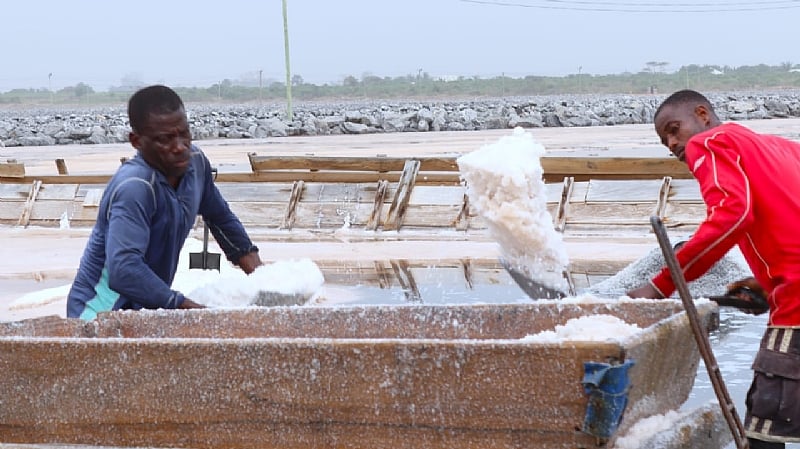Electrochem Ghana Limited, a subsidiary of the McDan Group, is embarking on an ambitious initiative to manually harvest salt, employing approximately 3,200 workers for the upcoming season. This undertaking is part of Electrochem’s commitment to bolstering local economies and creating sustainable employment opportunities for the country’s unemployed workforce. In a recent media interview, CEO Mr. Razak Adam emphasized that hiring individuals from the local community aligns with the company’s ethos of empowerment and economic stimulation. By focusing on the needs of the Ada community, Electrochem aims to support those who have historically played a vital role in salt production, ensuring that the benefits of this activity remain within the locality.
The company’s decision to hinge its harvesting method on manual labor instead of mechanization is driven by a desire to respect and preserve the traditional practices of the region, which has been recognized as a crucial center for salt production in Ghana. Mr. Adam elaborated on the dual purpose of this initiative; it is not only about salt extraction but is also a vehicle for improving the livelihoods of the people in Ada. By empowering the local populace through job creation, Electrochem envisions a positive transformation in the community’s economic landscape. The initiative also seeks to foster a sense of partnership between the company and the community, with the shared goal of creating a sustainable economic framework.
Electrochem Ghana Limited has outlined its commitment to furthering the welfare of the Ada community and beyond. Mr. Adam highlighted that their obligations extend beyond the immediate aim of salt harvesting. The company is pledged to engage in various developmental areas, including education, healthcare, and infrastructure advancement. Such investments are designed to facilitate sustainable growth and improve quality of life in the region for years to come. The comprehensive approach aligns well with modern corporate responsibility commitments and recognizes that a company’s success is inherently tied to the prosperity of the communities in which it operates.
The manual approach to salt harvesting is particularly noteworthy, given that Electrochem possesses sufficient technological resources to adopt mechanical harvesting methods. However, the conscious choice to prioritize human labor reflects a respect for local traditions and values. According to Mr. Adam, the company acknowledges that the long-standing practices of salt harvesting have significant cultural and economic importance, and thus the benefits of their operations must fortify this communal heritage. By choosing manual harvesting, Electrochem not only supports the livelihoods of workers in the short term but also fosters a culture of self-sufficiency and economic independence among the locals.
Electrochem’s leadership sees this initiative as a pathway toward generating lasting economic benefits for the Ada community, which could stabilize incomes for thousands of families. Mr. Adam expressed optimism about the socioeconomic impact of these job opportunities and the wider ripple effects they may have on family welfare and local businesses. By engaging 3,200 workers, the company expectantly positions itself as a cornerstone of economic activity in the region, ensuring that financial gains circulate within the community rather than being siphoned off elsewhere. This approach is consistent with modern principles of sustainable development, which advocate for local benefits and community involvement in resource management.
In conclusion, Electrochem Ghana Limited is poised to make a significant impact in the Ada community through its manual salt harvesting operations. By committing to job creation and investing in broader community development, the company illustrates a model of corporate responsibility that goes beyond mere profit-making. Mr. Adam’s vision reflects an understanding that business success is inextricably linked to the well-being of local populations, and through this approach, Electrochem aims to build a legacy that will benefit generations to come. As the company forges ahead, the anticipated economic resurgence in Ada could serve as a transformative example for similar initiatives across Ghana and beyond, characterized by sustainable practices and dedicated community engagement.


